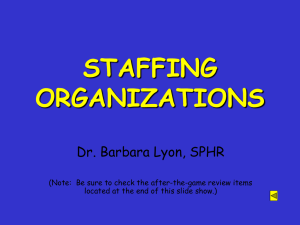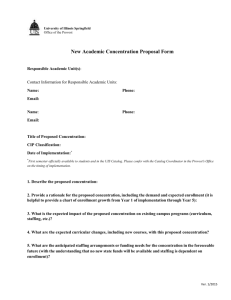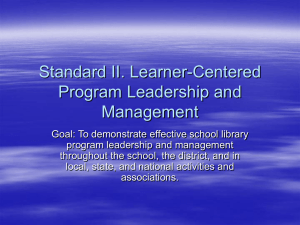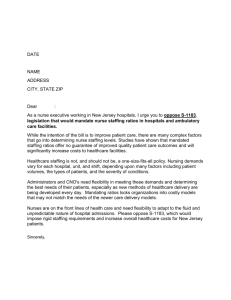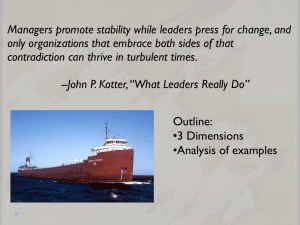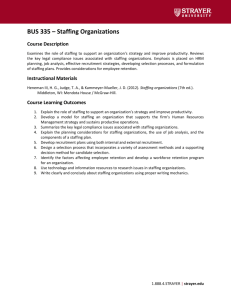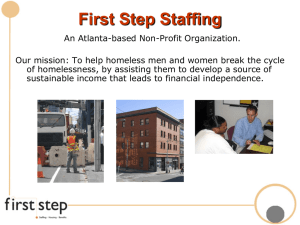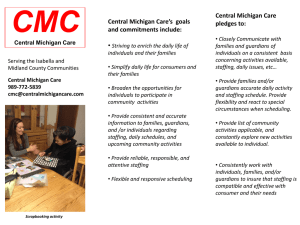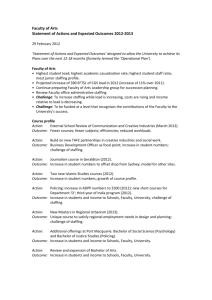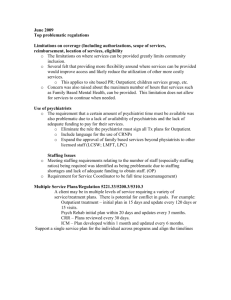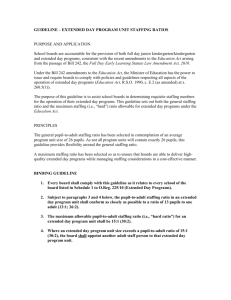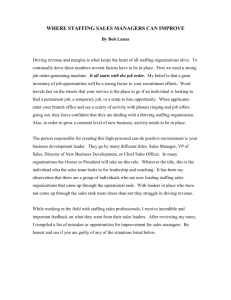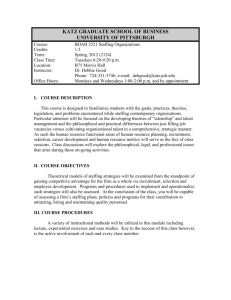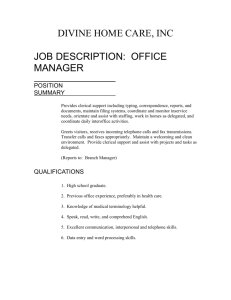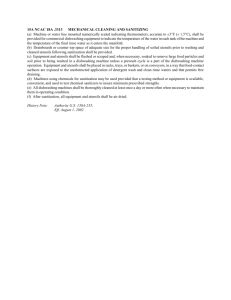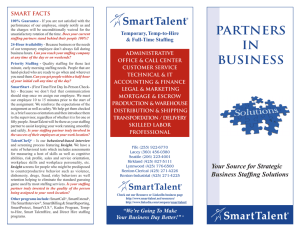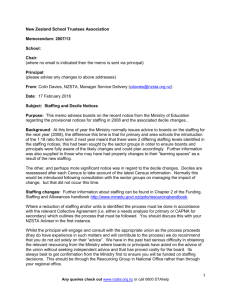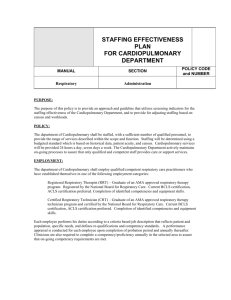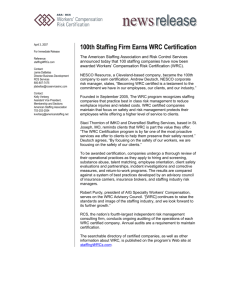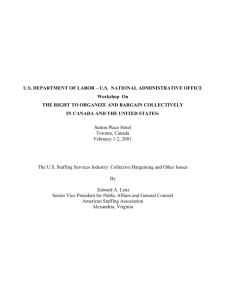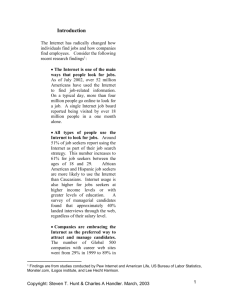Staffing Strategy for a New Plant Household Consumer Enterprises
advertisement
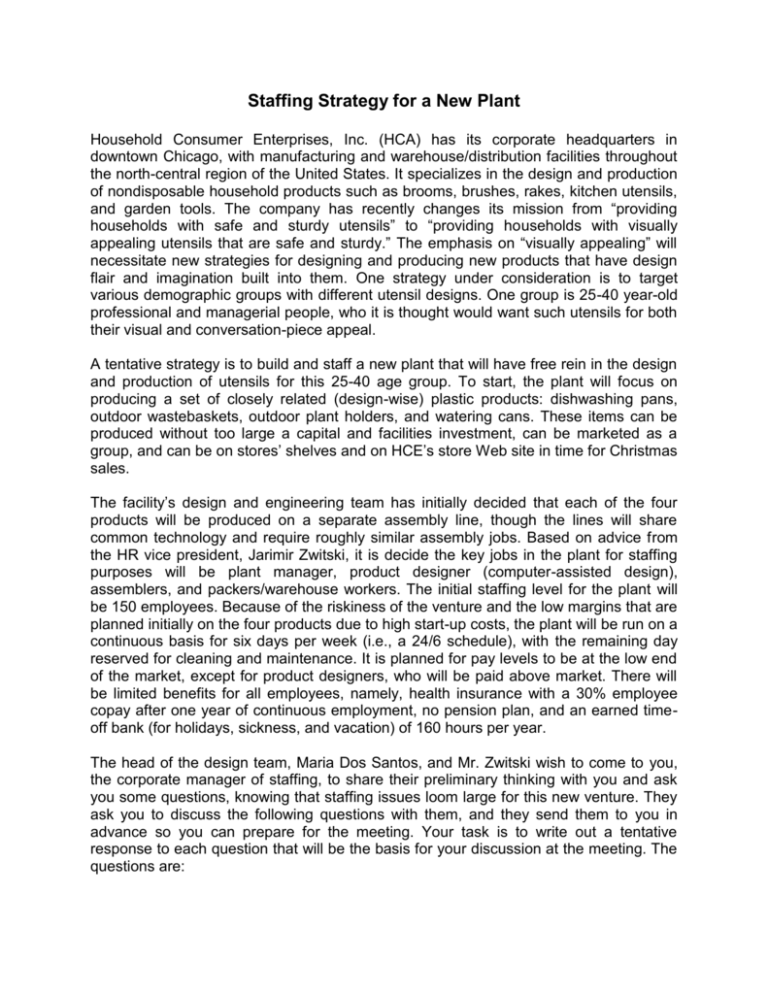
Staffing Strategy for a New Plant Household Consumer Enterprises, Inc. (HCA) has its corporate headquarters in downtown Chicago, with manufacturing and warehouse/distribution facilities throughout the north-central region of the United States. It specializes in the design and production of nondisposable household products such as brooms, brushes, rakes, kitchen utensils, and garden tools. The company has recently changes its mission from “providing households with safe and sturdy utensils” to “providing households with visually appealing utensils that are safe and sturdy.” The emphasis on “visually appealing” will necessitate new strategies for designing and producing new products that have design flair and imagination built into them. One strategy under consideration is to target various demographic groups with different utensil designs. One group is 25-40 year-old professional and managerial people, who it is thought would want such utensils for both their visual and conversation-piece appeal. A tentative strategy is to build and staff a new plant that will have free rein in the design and production of utensils for this 25-40 age group. To start, the plant will focus on producing a set of closely related (design-wise) plastic products: dishwashing pans, outdoor wastebaskets, outdoor plant holders, and watering cans. These items can be produced without too large a capital and facilities investment, can be marketed as a group, and can be on stores’ shelves and on HCE’s store Web site in time for Christmas sales. The facility’s design and engineering team has initially decided that each of the four products will be produced on a separate assembly line, though the lines will share common technology and require roughly similar assembly jobs. Based on advice from the HR vice president, Jarimir Zwitski, it is decide the key jobs in the plant for staffing purposes will be plant manager, product designer (computer-assisted design), assemblers, and packers/warehouse workers. The initial staffing level for the plant will be 150 employees. Because of the riskiness of the venture and the low margins that are planned initially on the four products due to high start-up costs, the plant will be run on a continuous basis for six days per week (i.e., a 24/6 schedule), with the remaining day reserved for cleaning and maintenance. It is planned for pay levels to be at the low end of the market, except for product designers, who will be paid above market. There will be limited benefits for all employees, namely, health insurance with a 30% employee copay after one year of continuous employment, no pension plan, and an earned timeoff bank (for holidays, sickness, and vacation) of 160 hours per year. The head of the design team, Maria Dos Santos, and Mr. Zwitski wish to come to you, the corporate manager of staffing, to share their preliminary thinking with you and ask you some questions, knowing that staffing issues loom large for this new venture. They ask you to discuss the following questions with them, and they send them to you in advance so you can prepare for the meeting. Your task is to write out a tentative response to each question that will be the basis for your discussion at the meeting. The questions are: 1. What geographic location might be best for the plant in terms of attracting sufficient quantity and quality of labor, especially for the key jobs? 2. Should the plant manager come from inside the current managerial ranks or be sought from the outside? 3. Should staffing be based on just the person/job match or also the person/organization match? 4. Would it make sense to staff the plant initially with a flexible workforce by using temporary employees and then shift over to a core workforce if it looks like the plant will be successful? If so, why? If not, why not? 5. In the early stages, should the plan be fully staffed, understaffed, or overstaffed? 6. Will employee retention likely be a problem, and if so, how would this affect the viability of the new plant? Source: Staffing Organizations, 6th Edition, Herbert G. Heneman III, Robert L. Heneman, Timothy A. Judge, McGraw-Hill Publishers, 2009.

